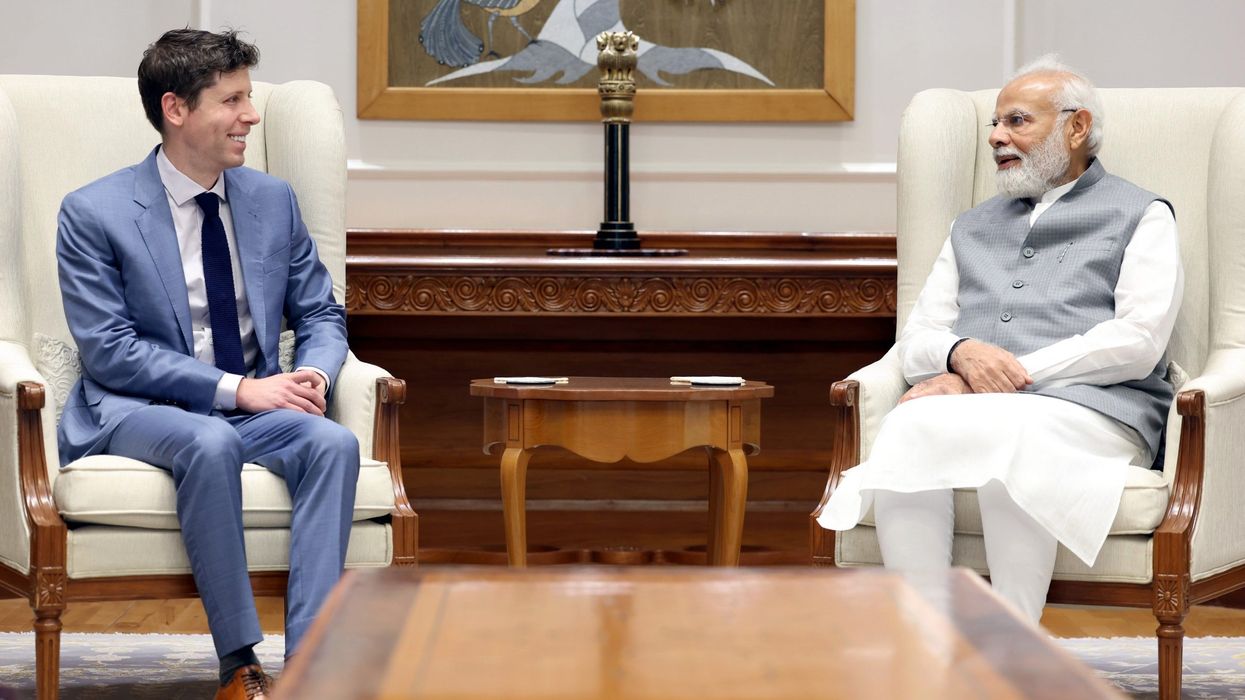THE chief executive officer of OpenAI, Sam Altman, met Indian prime minister Narendra Modi in New Delhi and discussed various aspects of AI including the need for global regulation.
Besides India, Altman is on a six-nation tour this week, including Israel, Jordan, Qatar, the UAE, and South Korea.
In a tweet, after meeting Altman, Modi wrote that the potential of AI in India's tech ecosystem is vast -- among the youth in particular.
"We welcome all collaborations that can accelerate our digital transformation for empowering our citizens," Modi wrote.
During a session at IIIT Delhi, Altman said they discussed about the opportunities in front of the country and what the country should do in AI.
"We also felt the need to think about global regulation, which prevents some of the downsides from happening," Altman said.
Altman said that his company was currently doing self-regulation.
"We spent almost eight months on GPT for making sure that it was safe enough to release. We build the technology, we have worked with organisations to figure out what the limits should be and tested them all. We do think that coordination is important. So self-regulation is important. It is something that we want to offer. The world should not be left entirely in the hands of the companies," Altman said at the session.
Talking about his plan for India, Altman said that the first thing he will do in India is to fund startups.
"We were always amazed and quite grateful for the quality of Indian startups," he said, adding that he had met some startups in India.
Given India's strong IT industry and a large set of data, AI-based utilities can leverage huge potential in the country. Though AI is still in its early stages.
The government, quoting Nasscom data in February, said the overall AI employment in India is estimated at about 416,000 professionals and the growth rate for the sector is estimated at about 20-25 per cent.
Further, AI is expected to contribute an additional $957 billion to India's economy by 2035.
Many nations the world over have been using AI technologies for better service delivery and to reduce human intervention but fears of job cuts remain as the technology evolves.
(ANI)





